Use this nursing care plan and management guide to help care for patients with meningitis. Learn about the nursing assessment, nursing interventions, goals and nursing diagnosis for meningitis in this guide.
What is Meningitis?
Meningitis is the inflammation of the meninges of the brain and spinal cord as a result of either bacteria, viral or fungal infection. Bacterial infections may be caused by Haemophilus influenzae type b, Neisseria meningitidis (meningococcal meningitis), and Streptococcus pneumoniae (pneumococcal meningitis). Those at greatest risk for this disease are infants between 6 and 12 months of age with most cases occurring between 1 month and 5 years of age. The most common route of infection is vascular dissemination from an infection in the nasopharynx or sinuses, or one implanted as a result of wounds, skull fracture, lumbar puncture, or surgical procedure. Viral (aseptic) meningitis is caused by a variety of viral agents and usually associated with measles, mumps, herpes, or enteritis. This form of meningitis is self-limiting and treated symptomatically for 3 to 10 days.
Treatment includes hospitalization to differentiate between the two types of meningitis, isolation and management of symptoms, and prevention of complications.
Nursing Care Plans and Management
Nursing care plan goals for a child with meningitis include attaining adequate cerebral tissue perfusion through a reduction in ICP, maintaining normal body temperature, protection against injury, enhancing coping measures, accurate perception of environmental stimuli, restoring normal cognitive functions, and prevention of complications.
Nursing Problem Priorities
The following are the nursing priorities for patients with meningitis:
- Recognize and assess signs and symptoms of meningitis.
- Facilitate prompt medical evaluation and initiation of appropriate treatment.
- Monitor vital signs and neurological status regularly.
- Administer prescribed antibiotics or antiviral medications as directed.
- Manage symptoms and provide supportive care, such as pain relief or fluid management.
- Collaborate with healthcare providers to coordinate diagnostic tests, such as lumbar puncture or imaging studies.
- Educate patients and families on the nature of meningitis, treatment options, and the importance of vaccination.
- Monitor for and manage potential complications, such as seizures or neurological deficits.
- Implement infection control measures to prevent transmission in the healthcare setting.
- Offer emotional support and counseling to patients and families during the recovery process.
Nursing Assessment
Assess for the following subjective and objective data:
- Severe headache
- Stiff neck
- High fever
- Sensitivity to light
- Nausea and vomiting
- Altered mental status, Irritability
- Fatigue and lethargy
- Seizures
- Joint and muscle pain
- Positive Kernig’s sign (resistance and pain with knee extension when lying with hip flexed)
- Positive Brudzinski’s sign (neck flexion causing involuntary hip and knee flexion)
- Positive meningeal signs (nuchal rigidity, positive Babinski reflex, etc.)
- Abnormal eye movements
- Positive lumbar puncture findings (elevated cerebrospinal fluid white blood cells, increased protein levels, decreased glucose levels)
Nursing Diagnosis
Following a thorough assessment, a nursing diagnosis is formulated to specifically address the challenges associated with meningitis based on the nurse’s clinical judgment and understanding of the patient’s unique health condition. While nursing diagnoses serve as a framework for organizing care, their usefulness may vary in different clinical situations. In real-life clinical settings, it is important to note that the use of specific nursing diagnostic labels may not be as prominent or commonly utilized as other components of the care plan. It is ultimately the nurse’s clinical expertise and judgment that shape the care plan to meet the unique needs of each patient, prioritizing their health concerns and priorities.
Nursing Goals
Goals and expected outcomes may include:
- The child will have vital signs return to normal; the child is alerted and oriented: motor, cognitive, and sensory functions are within acceptable parameters for the child’s age; normal specific urine gravity.
- The child will regain and maintain body temperature within a normal range.
- The child will express feelings of comfort and relief from pain.
- The child will maintain normal LOC.
- The parents will experience decreased anxiety.
- The parents verbalize understanding of the cause and treatment plan.
- The child will not experience injury.
Nursing Interventions and Actions
Therapeutic interventions and nursing actions for patients with meningitis may include:
1. Assessing Neurological Status and Improving Cerebral Tissue Perfusion
In meningitis, the neurologic status can be significantly affected due to inflammation and infection in the meninges. Brain circulation, on the other hand, refers to the blood flow within the brain, which is vital for delivering oxygen and nutrients to brain cells. In meningitis, disrupted brain circulation can occur due to inflammation, leading to impaired oxygenation and nutrient supply, potentially causing neurologic symptoms and complications.
Monitor vital signs and neurological status.
Increasing systolic blood pressure accompanied by decreasing diastolic blood pressure is an ominous sign of increased ICP.
Observe for any signs of increased intracranial pressure.
Signs and symptoms that indicate an increase in ICP include headache, drowsiness, decreased alertness, vomiting, and a bulging fontanelle (infants).
Assess for nuchal rigidity, twitching, increased restlessness, and irritability.
These are signs of meningeal irritation, which may happen because of infection.
Observe for increasing restlessness, moaning, and guarding behaviors.
These nonverbal cues may indicate increasing ICP or pain. Unrelieved pain can potentiate increased ICP.
Monitor arterial blood gases (ABGs) and oxygen saturation.
Determines the presence of hypoxia and indicates therapy needs.
Maintain the head or neck in the midline position, and provide a small pillow for support.
Turning the head to one side compresses the jugular veins and inhibits venous drainage, thereby increasing ICP.
During repositioning, avoid bending the knee and pushing heels against the mattress.
These activities increase intra-thoracic and intrabdominal pressures, thereby increasing ICP.
Provide comfort measures and Decrease external stimuli such as a quiet environment, soft voice, and gentle touch.
Produces relaxing effect which decreases adverse physiologic response and promotes rest to maintain or lower ICP.
Elevate the head of the bed at 30°, and avoid neck flexion and hip flexion.
Promotes venous drainage from the head, thereby reducing cerebral congestion and edema and the risk of increased ICP.
Administer oxygen as needed.
Reduces hypoxia which can increase blood volume, promotes cerebral vasodilation, and elevate ICP.
Administer medications as indicated.
See Pharmacologic Management
2. Normalizing Body Temperature
Fever is a common symptom and can have detrimental effects on the body of a patient with meningitis. Maintaining a normal body temperature is important to minimize metabolic demands and reduce the risk of increased intracranial pressure. Controlling fever through appropriate interventions such as antipyretic medications can help alleviate patient discomfort and prevent potential complications associated with elevated body temperature.
Assess the child’s vital signs closely.
A history of aseptic viral meningitis usually begins with an onset of fever up to 104°F. As hyperthermia progresses, HR and BP increase also.
Assess for signs of dehydration such as dry mouth, sunken eyes, sunken fontanelle, and low concentrated urine output.
Elevated body temperature increases the metabolic rate, hence increasing the insensible fluid loss.
Gradually decrease temperature.
Shivering can happen from rapid reduction of temperature which can result in to rebound effect and increase the temperature instead lower the temperature.
Perform tepid sponge.
Decreases temperature by liberating heat by conduction and convection.
Maintain adequate fluid intake as tolerated.
Prevents dehydration; Avoid fluid overload because of the risk of cerebral edema.
Administer antibiotics as indicated.
Antibiotics are given to treat the underlying causes of inflammation and thus prevent the occurrence of seizure activity.
Administer antipyretics as indicated.
Antipyretics decrease fever and lessen brain oxygen demand as fever increases cerebral metabolic demand.
3. Managing Acute Pain
Patients with meningitis experience pain due to the inflammation and irritation of the meninges, which are the protective membranes surrounding the brain and spinal cord. The inflammatory response triggers the activation of pain receptors in the meninges, resulting in severe headache and neck stiffness. Furthermore, the increased pressure inside the skull caused by the swelling of the brain can further contribute to the sensation of pain.
Assess for headache and photophobia.
When the meninges of the brain become infected, it can lead to inflammation that triggers severe headaches; Meningitis also causes hypersensitivity to bright lights.
Assess for Kernig’s sign (pain and resistance on passive knee extension with hips fully flexed) and Brudzinski’s sign (hips flex on bending the head forward).
These are used to assess for any sign of meningeal irritation.
Maintain a quiet environment and keep the child’s room darkened.
Darkening the room may decrease photophobia.
Prevent stimulation and restrict visitors.
Stimulation can increase intracranial pressure, hence intensifying the pain.
Control the environment to encourage rest.
Environmental changes such as increased noise and glaring light cause sensory overload that promotes cerebral irritation leading to convulsions.
Turn the client often and position the client carefully.
Promotes comfort and reduces irritation and agitation.
Assist ROM exercises.
Prevent joint stiffness and neck pain.
Administer antibiotics and corticosteroids as prescribed.
See Pharmacologic Management
Administer analgesics such as acetaminophen or NSAIDs as prescribed.
See Pharmacologic Management
4. Improving Sensory Perception and Preventing Injuries
Patients with meningitis may experience altered sensory perception due to the inflammation affecting the central nervous system. This can lead to heightened sensitivity to light, sound, and touch, as well as changes in taste and smell. The impairment of sensory perception, combined with the potential neurological deficits and altered mental status, increases the risk of injury for these patients, as they may have difficulty perceiving their surroundings accurately and maintaining coordination and balance.
Assess the level of consciousness using the pediatric Glasgow coma scale.
Glasgow coma scale is a reliable and objective way of measuring the motor, verbal and sensory cues related to LOC. Neurological assessment aids in determining the extent of damage in meningitis.
Observe and notify the physician of persistent deterioration in LOC.
Additional changes in the treatment may be required once the LOC furtherly decreases. Change in mentation, seizures, increased blood pressure (BP), bradycardia, or respiratory abnormalities may indicate increasing ICP with decreased cerebral perfusion pressure.
Assess for signs of cerebral edema such as dizziness, headache, irregular breathing, neck pain, nausea, or vomiting.
Anoxia, vasodilation, or vascular stasis can lead to cerebral edema due to the increased intracellular and extracellular fluid in the brain as the symptoms progress.
Assess the ability to follow simple or complex commands.
Impaired cognitive function occurs with cerebral hemisphere involvement.
Evaluate the presence or absence of protective reflexes: swallow, gag, blink, cough.
Absence of reflexes is a late sign indicative of increasing ICP.
Assess for signs of meningeal irritation such as headache, photophobia, nuchal rigidity, opisthotonic position, Kernig’s sign, and Brudzinki’s sign.
Meningeal signs are a result of meningeal and spinal root inflammation, and/or pooling of infectious exudates and are cardinal features of meningeal irritation.
Elevate the head of bed up to 30° to 45° with the client’s head in a neutral position.
Promotes venous outflow from the brain and help decrease ICP.
Reorient the client to the environment, as needed.
Frequent reality orientation is important to promote cognitive function.
Assist with diagnostic testing.
See Laboratory and Diagnostic Procedures
Electroencephalogram
Lumbar puncture for CSF
Magnetic resonance imaging (MRI), computed tomography (CT), or ventriculogram
Initiate seizure precautions: observe and provide care during a seizure.
Providing appropriate and precise care during a seizure prevents complications and further brain damage.
Maintain a quiet environment and keep the lights dim.
Prevents stimulation that can cause or precipitate an episode of convulsion.
Assess pupil size every 3 hours during the first 24 hours and consequently every 6 hours.
Increased intracranial pressure (ICP) will result in uneven pupil sizes, and fixed dilated pupils.
Observe and document the pattern and frequency of seizure. Notify the physician of seizure activity.
Changes in seizure patterns signify the need for additional neurological evaluation, anticonvulsant medications, and reevaluation of treatment. Seizure usually happens prior an increase in intracranial pressure (ICP). Adequate treatment of infection will mitigate further deterioration and maintain intracranial pressure within normal limits.
Allow parents to participate in the child’s care.
Support better coping and decrease anxiety.
Administer and monitor anticonvulsant drug levels.
Anticonvulsants are both used as prophylaxis and treatment. Therapy involves keeping therapeutic blood levels to avoid the occurrence of seizures. See Pharmacologic Management
Assess neurologic status to include VS pattern, changes in consciousness, behavior patterns, and pupillary/ocular responses appropriate for age (measure head circumference in infant) (specify when).
Provides information that offers clues to possible changes in intracranial pressure caused by inflammation of the brain and associated edema.
Attach the cardiac and respiratory monitor to assess for bradycardia and hypoxia.
Increased intracranial pressure will
decrease pulse and respirations, widen the pulse pressure with pulse becoming irregular and respirations rapid and shallow as ICP progresses and the body attempts to decrease blood flow to the brain.
Note any seizure activity including onset, frequency, duration, and type of movements before, during, or after the seizure; pad bed and remove objects/toys from bed, and administer any ordered anticonvulsants.
Prevents injury during a seizure which is a complication of meningitis.
Provide a quiet environment free from bright lighting, minimize gentle handling and care of infant/child, allow for rest periods between care or procedures, and restrict visiting if irritable.
Promotes comfort and rest and reduces irritability.
Stay with the infant/child and sit near and speak in a low voice.
Provides limited stimulation to infant/child during the acute stage of the disease.
Position with the head elevated up to 30 degrees and maintain head alignment with a sandbag.
Decreases intracranial pressure by allowing blood flow from the brain by gravity or any obstruction of jugular drainage.
Reposition q 2h, positioning child to optimize comfort with HOB slightly elevated, no pillow in bed, side-lying position if nuchal rigidity present; avoid sudden movements such as lifting the head; have oxygen and suctioning equipment on hand to be administered when needed.
Maintains airway patency and prevents obstruction by secretion which increases CO2 retention and ICP.
Explain the causes of increased ICP and the importance of preventing any further
increases in ICP.
Allows for understanding of increased ICP and the life-threatening nature of such a complication.
Inform parents of changes in condition, reasons for physical and mental changes, and effects of the disease.
Promotes knowledge about possible manifestations of the disease and causes.
Inform of the reason for seizure activity and other signs and symptoms of the disease and treatment necessitated by them.
Provides knowledge of seizure complications and actions and responsibility in prevention and/ or treatment of this activity.
Inform parents of the risk for complications and the need for monitoring for increased ICP; review signs and symptoms of increased ICP.
Allows for ongoing care and responsibility in preventing a change in neurologic status.
Administer antibiotics as prescribed (specify) as soon as ordered based on
analysis of CSF, and throat cultures.
Manages existing infection and prevents further spread of infection (action of drug). See Pharmacologic Management
Administer stool softeners, avoid the use of restraints, and prevent or reduce crying episodes.
Prevents Valsalva’s maneuver that will increase ICP.
5. Reducing Anxiety
Aside from the uncertainty surrounding the prognosis of meningitis, patients with meningitis may experience anxiety due to the distressing symptoms and potentially life-threatening nature of the condition. The severity of symptoms such as severe headache, altered mental status, and sensitivity to light can cause significant worry and fear.
Assess sources and level of anxiety, how anxiety is manifested, and the need for information and support.
Provides information about the need for interventions to relieve anxiety and concern; sources may include fear and uncertainty about treatment and recovery, guilt for the presence of illness, possible loss of the parental role, and loss of responsibility when hospitalization is necessary.
Assess parental feelings of guilt from not suspecting the seriousness of the illness sooner; encourage them to openly discuss feelings.
Prevents or minimizes feelings of blame or guilt.
Encourage to express concerns and ask to express concerns and ask questions regarding the condition of the ill child.
Provides an opportunity to vent feelings, and secure information needed to reduce anxiety.
Encourage the parent to stay with the child or visit when able and call when concerned if hospitalized; assist in care (hold, feed, bathe, clothe, and diaper), and provide information about the child’s daily routines.
Allows parents to care for and support the child instead of increasing anxiety if not with the child.
Encourage to be involved in care and decision-making regarding needs.
Promotes constant monitoring of child’s child’s condition for improvements or worsening of symptoms.
Teach about disease processes and behaviors, physical effects, and symptoms of disease.
Relieves anxiety of parents.
Explain the reason for procedures or type of therapy, and the effects of any diagnostic tests (specify).
Reduces fear of the unknown which increases anxiety.
Teach parents about isolation precautions for at least 24 hours or until the diagnosis is made and antibiotic therapy begins to take effect.
Provides an opportunity to validate the type of meningitis and to take measures to prevent transmission to others in contact with the child.
Clarify any misinformation and answer questions in lay terms when parents are able to listen and give the same explanation as other staff and/or physicians gave regarding disease process and transmission.
Prevents unnecessary anxiety resulting from inaccurate knowledge or beliefs or inconsistencies in information.
6. Initiating Patient Education and Health Teachings
Insufficient knowledge about the condition poses a significant challenge for patients with meningitis as it can lead to delays in seeking medical attention and appropriate treatment. A lack of awareness about the symptoms and seriousness of meningitis may result in a failure to recognize the urgency of the condition. Moreover, inadequate knowledge about post-meningitis care, including potential complications and the need for follow-up, may hinder the patient’s ability to manage their condition effectively and prevent future complications.
Assess knowledge of disease and method to control and resolve disease; willingness and interest of parents to implement care.
Promotes a plan of instruction that is realistic to ensure compliance with medical regimen; prevents a repetition of information.
Provide information and explanations in clear language that is understandable; use pictures, pamphlets, videotapes, and models in teaching about the disease.
Ensures understanding based on readiness and ability to learn; visual aids reinforce learning.
Teach about the administration of medications including (specify: the action of drugs, dosages times frequency, side effects, expected results, and methods to give medications); provide written instructions and schedule to follow and inform to administer a full course of antibiotic to the child.
Provides information for compliance in medication therapy to prevent or treat infection and seizure activity resulting from the disease; bacterial meningitis is treated with antibiotics, and viral meningitis may be treated with antibiotics until the diagnosis is established.
Assist to plan feedings and/or develop menus to include nourishing fluids, caloric, and basic four groups for the age groups.
Promotes optimal nutrition in a progressive manner as tolerable.
Reinforce to parents about follow-up to assess for potential hearing impairment.
Promotes identification of hearing loss (injury to 8th cranial nerve caused by meningitis).
Inform parents as to the benefits of routine immunizations with H. influenzae (type B) vaccine, beginning at 2 months of age for a total of 3 doses.
May prevent the disease; data suggest the incidence of this form of meningitis has decreased since the vaccine was introduced; may decrease the spread of infection to unvaccinated infants.
Teach to promote adequate rest and activities that provide age-appropriate play and stimulation (specify).
Rest is important for convalescence and stimulating activities needed for continued development or to promote stimulation if developmental lag is present.
Teach to isolate other children in the family for 24 hours if the respiratory infection is present or until the culture is negative.
Prevents transmission of bacteria to others in the family.
Teach to report elevated temperature, poor feeding or anorexia, irritability or other changes in behavior or level of consciousness, and a decrease in hearing acuity.
Reveals signs and symptoms of the presence of or spread of infection.
Administer antibiotics as prescribed (specify) as soon as ordered based on analysis of CSF, and throat cultures.
Manages existing infection and prevents further spread of infection (action of drug).
Provide stool softeners or mild laxatives, avoid the use of restraints, and prevent or reduce crying episodes.
Prevents constipation and lessens the risk of increased ICP due to straining from defecation.
7. Administer Medications and Provide Pharmacologic Support
Medications used in the treatment of meningitis vary depending on the underlying cause. Antibiotics are commonly prescribed for bacterial meningitis to eliminate the bacterial infection, while antiviral drugs may be used for viral meningitis. In some cases, corticosteroids are also administered to reduce inflammation in the brain.
Antibiotics
In bacterial meningitis cases, broad-spectrum antibiotics are typically administered intravenously, such as ceftriaxone, cefotaxime, or meropenem, to target the specific bacteria causing the infection.
Antivirals
For viral meningitis, antiviral medications like acyclovir may be prescribed, particularly if herpes simplex virus or other specific viruses are suspected.
Antifungals
In cases of fungal meningitis, antifungal drugs like amphotericin B may be used to combat the fungal infection.
Corticosteroids
These medications, such as dexamethasone, may be administered in certain cases of bacterial meningitis to reduce inflammation and swelling in the brain.
Analgesics
Pain relievers such as acetaminophen or ibuprofen may be given to alleviate headache and fever associated with meningitis.
Osmotic diuretic: Mannitol (Osmitrol).
Used to treat cerebral edema by promoting cerebral blood flow
Anticonvulsants: Diazepam (Valium) or phenytoin (Dilantin).
Used to control seizures related to increased intracranial pressure.
8. Monitoring Results of Diagnostic and Laboratory Procedures
In patients with meningitis, laboratory and diagnostic procedures commonly utilized include lumbar puncture (spinal tap) to collect cerebrospinal fluid for analysis, which helps identify the presence of infection or inflammation. While blood cultures and imaging studies such as CT scans or MRIs may be conducted to detect any causative organisms or complications associated with meningitis, respectively.
Lumbar puncture (spinal tap)
This procedure involves the collection of cerebrospinal fluid (CSF) through a needle inserted into the spinal canal. CSF analysis helps determine the presence of infection or inflammation, as well as the specific type of meningitis.
CSF analysis
The collected CSF is examined for various parameters, including cell count, glucose levels, protein levels, and the presence of bacteria, viruses, or fungi. Abnormal findings can provide important diagnostic information.
Blood cultures
Blood samples are taken and cultured to identify any bacteria or fungi that may have entered the bloodstream and caused meningitis.
Imaging studies
Imaging techniques such as computed tomography (CT) scan or magnetic resonance imaging (MRI) may be performed to assess the brain and detect any complications related to meningitis, such as abscesses or swelling.
Polymerase chain reaction (PCR)
PCR testing is used to detect and identify specific DNA or RNA sequences of bacteria, viruses, or fungi, providing rapid and accurate diagnosis, especially for viral meningitis.
Gram stain
This laboratory test involves staining a sample of CSF or other bodily fluids to identify the presence of bacteria and assess their characteristics.
Ventriculogram
Also known as ventriculography, is a diagnostic procedure used in some cases of meningitis to assess the ventricular system within the brain. It involves injecting a contrast agent into the ventricles to obtain detailed images and evaluate the flow of cerebrospinal fluid (CSF) and any potential blockages or abnormalities.
Recommended Resources
Recommended nursing diagnosis and nursing care plan books and resources.
Disclosure: Included below are affiliate links from Amazon at no additional cost from you. We may earn a small commission from your purchase. For more information, check out our privacy policy.
Ackley and Ladwig’s Nursing Diagnosis Handbook: An Evidence-Based Guide to Planning Care
We love this book because of its evidence-based approach to nursing interventions. This care plan handbook uses an easy, three-step system to guide you through client assessment, nursing diagnosis, and care planning. Includes step-by-step instructions showing how to implement care and evaluate outcomes, and help you build skills in diagnostic reasoning and critical thinking.
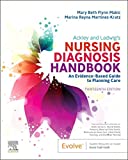
Nursing Care Plans – Nursing Diagnosis & Intervention (10th Edition)
Includes over two hundred care plans that reflect the most recent evidence-based guidelines. New to this edition are ICNP diagnoses, care plans on LGBTQ health issues, and on electrolytes and acid-base balance.
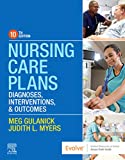
Nurse’s Pocket Guide: Diagnoses, Prioritized Interventions, and Rationales
Quick-reference tool includes all you need to identify the correct diagnoses for efficient patient care planning. The sixteenth edition includes the most recent nursing diagnoses and interventions and an alphabetized listing of nursing diagnoses covering more than 400 disorders.

Nursing Diagnosis Manual: Planning, Individualizing, and Documenting Client Care
Identify interventions to plan, individualize, and document care for more than 800 diseases and disorders. Only in the Nursing Diagnosis Manual will you find for each diagnosis subjectively and objectively – sample clinical applications, prioritized action/interventions with rationales – a documentation section, and much more!
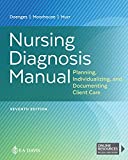
All-in-One Nursing Care Planning Resource – E-Book: Medical-Surgical, Pediatric, Maternity, and Psychiatric-Mental Health
Includes over 100 care plans for medical-surgical, maternity/OB, pediatrics, and psychiatric and mental health. Interprofessional “patient problems” focus familiarizes you with how to speak to patients.
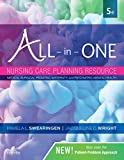
See also
Other recommended site resources for this nursing care plan:
- Nursing Care Plans (NCP): Ultimate Guide and Database MUST READ!
Over 150+ nursing care plans for different diseases and conditions. Includes our easy-to-follow guide on how to create nursing care plans from scratch. - Nursing Diagnosis Guide and List: All You Need to Know to Master Diagnosing
Our comprehensive guide on how to create and write diagnostic labels. Includes detailed nursing care plan guides for common nursing diagnostic labels.
Other nursing care plans related to neurological disorders:
- Alzheimer’s Disease | 15 Care Plans
- Brain Tumor | 3 Care Plans
- Cerebral Palsy | 7 Care Plans
- Cerebrovascular Accident | 12 Care Plans
- Guillain-Barre Syndrome | 6 Care Plans
- Meningitis | 7 Care Plans
- Multiple Sclerosis | 9 Care Plans
- Parkinson’s Disease | 9 Care Plans
- Seizure Disorder | 4 Care Plans
- Spinal Cord Injury | 12 Care Plans
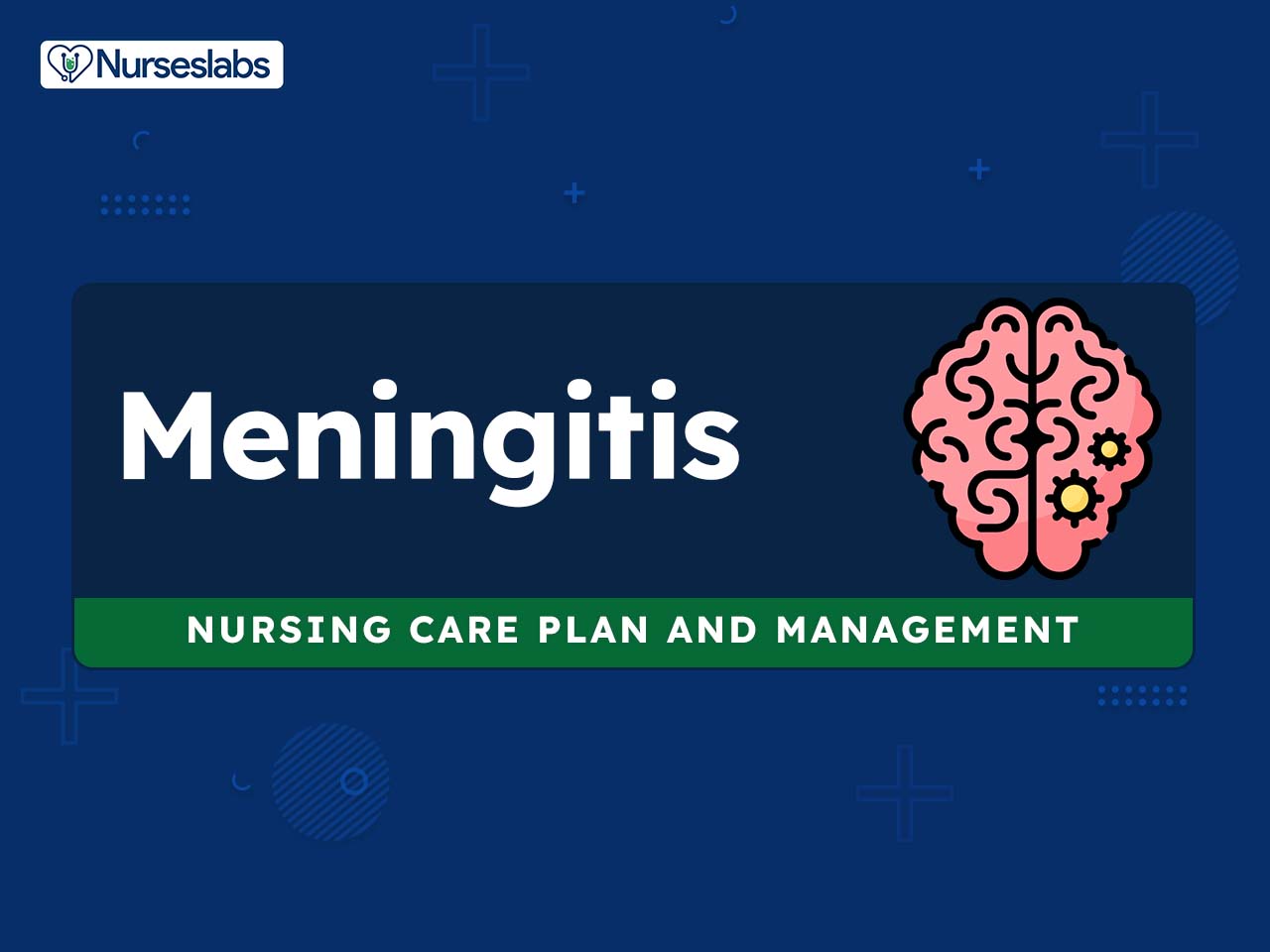
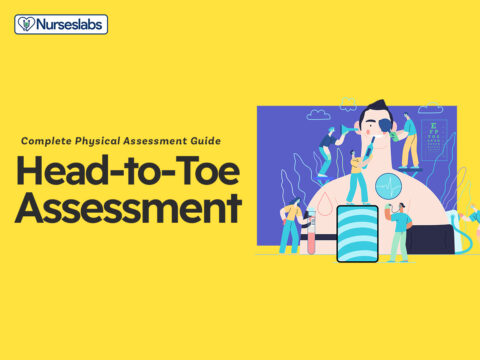
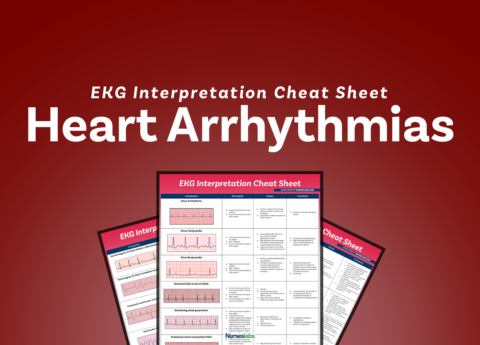
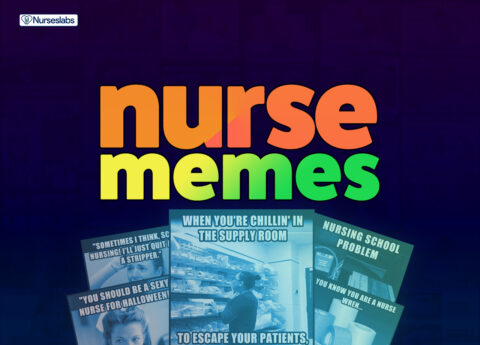





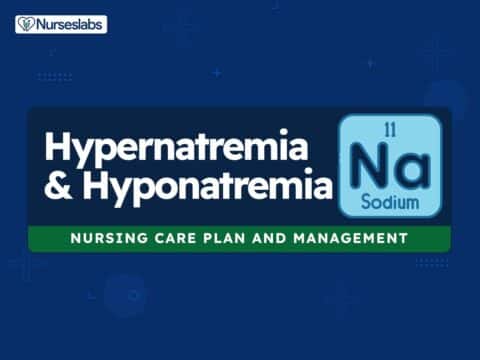


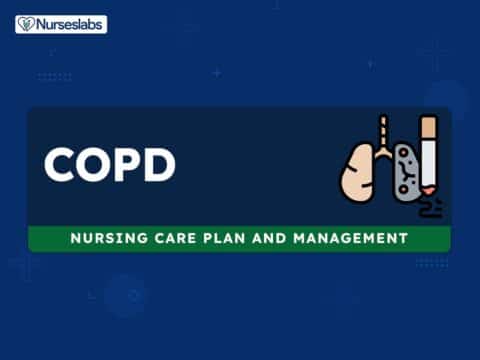
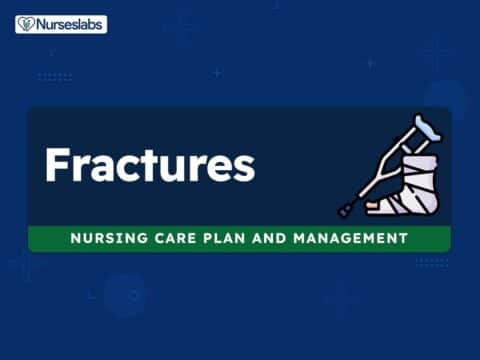

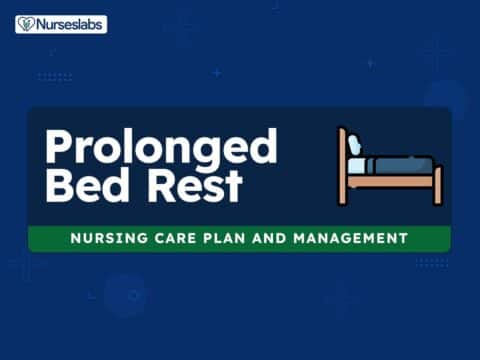
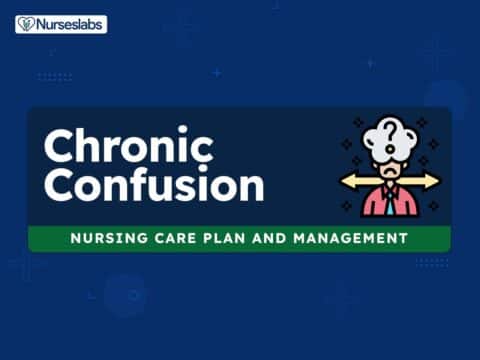

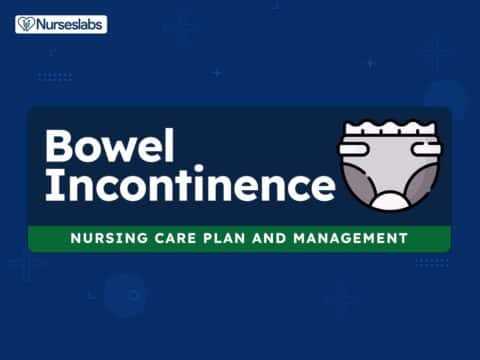
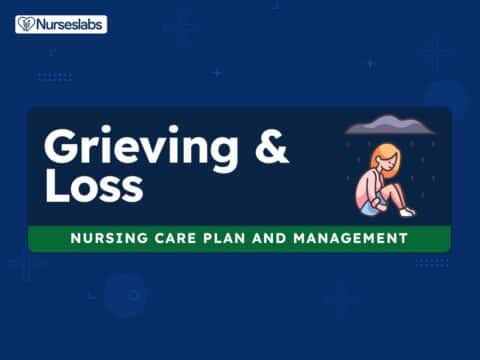
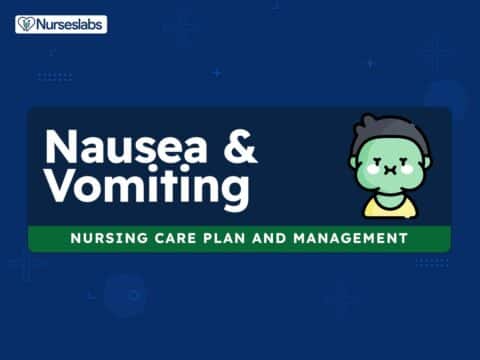
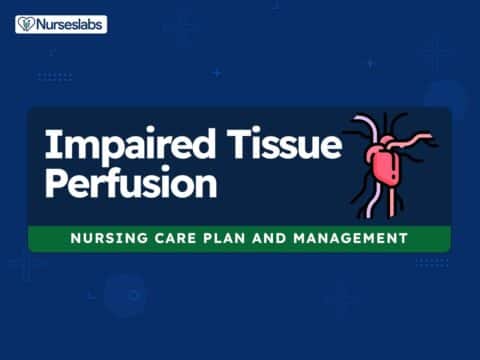

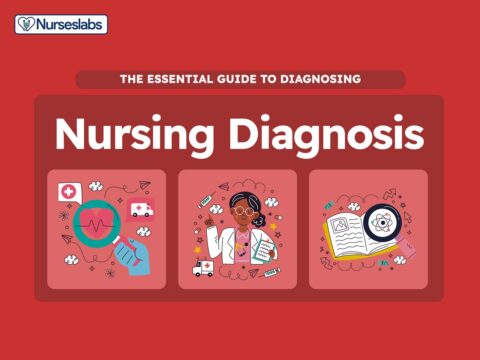
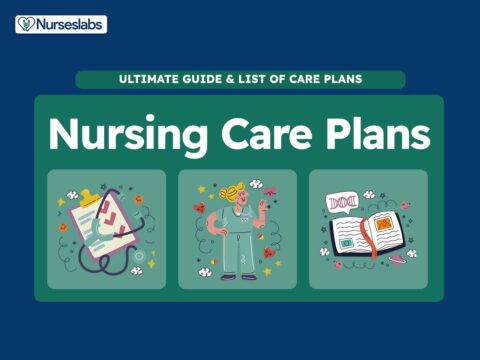
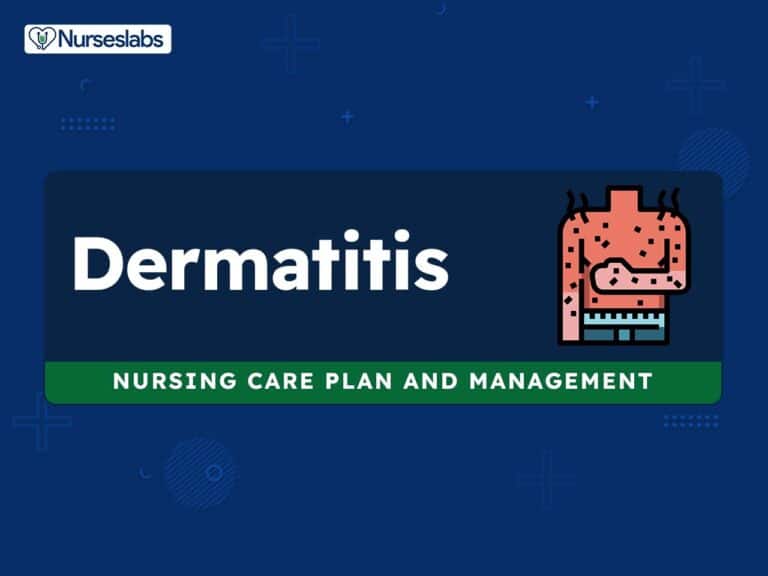

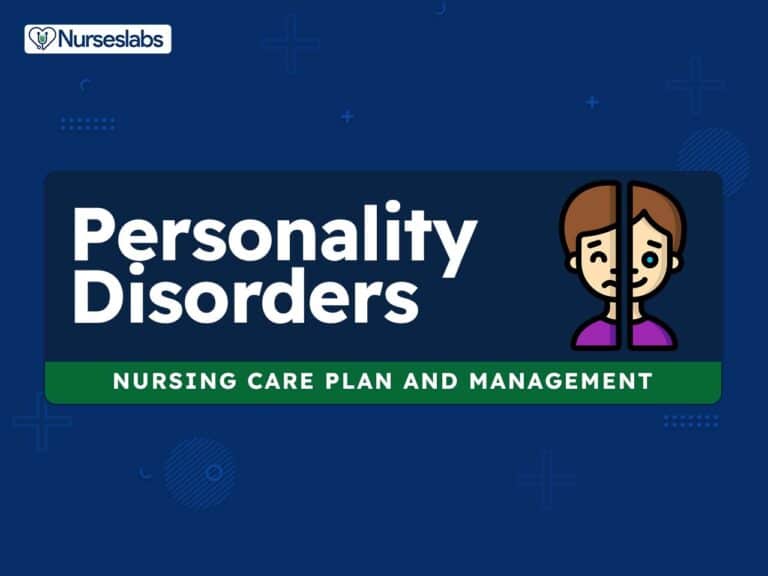


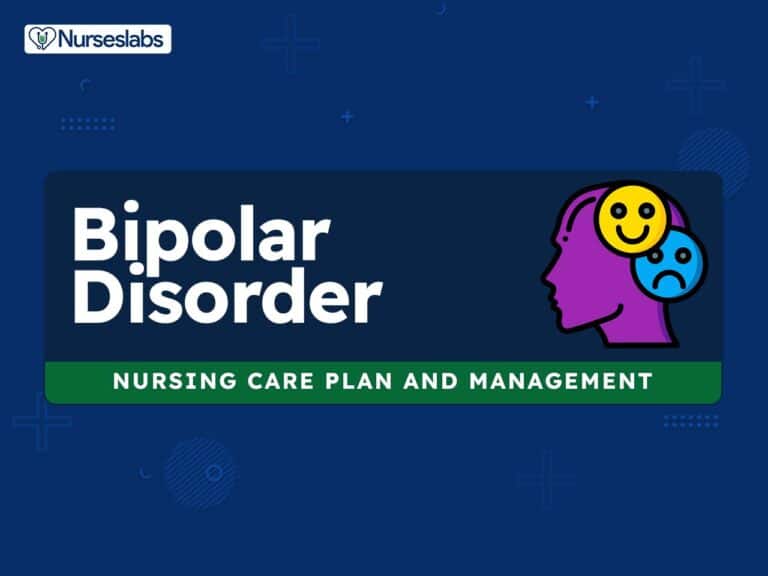
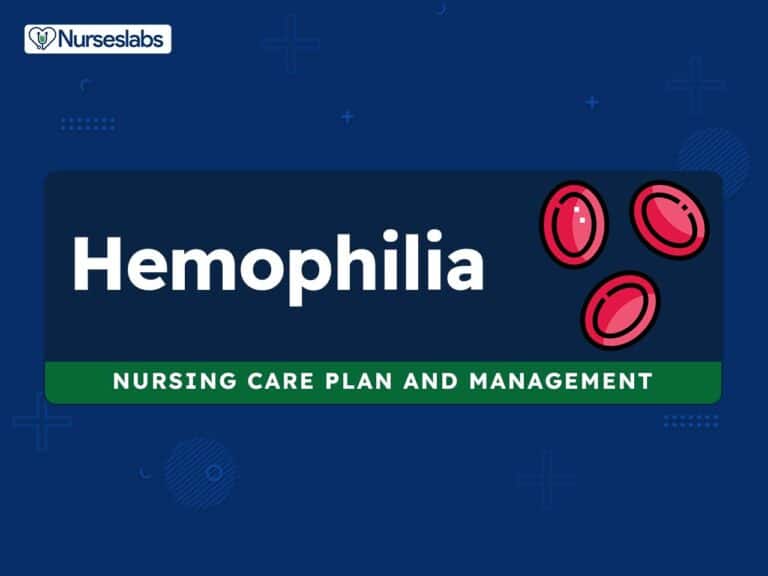
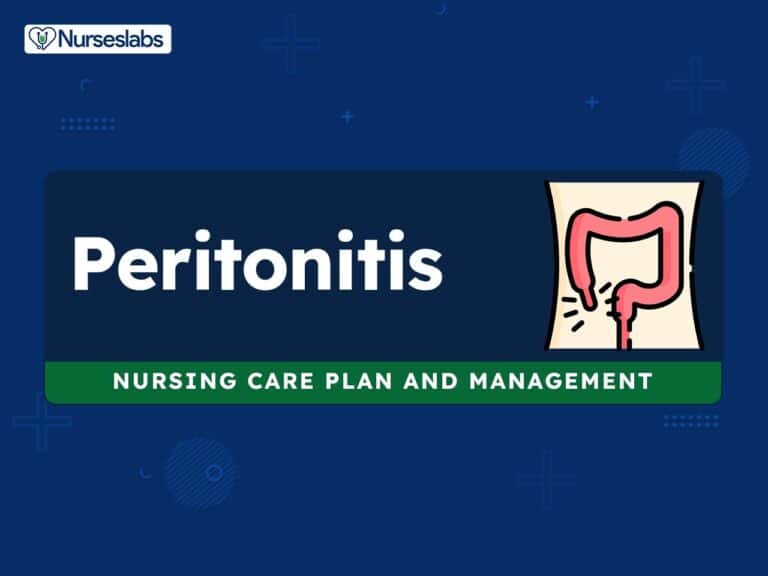
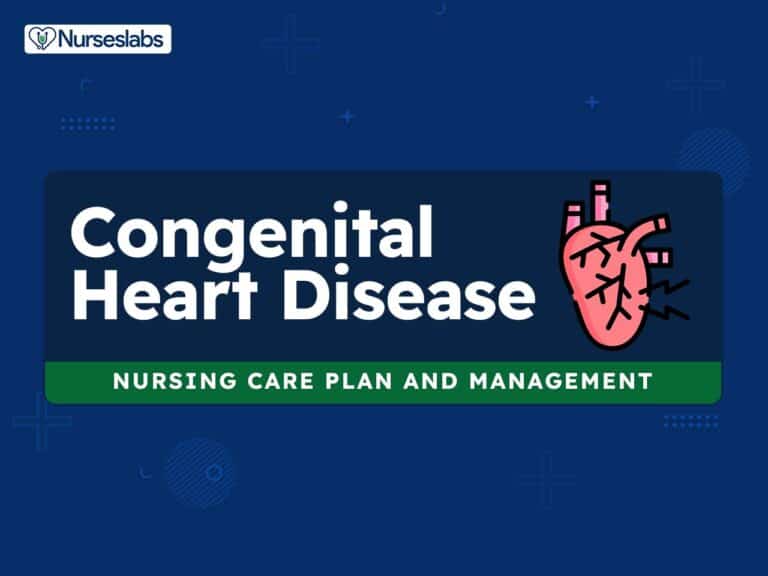
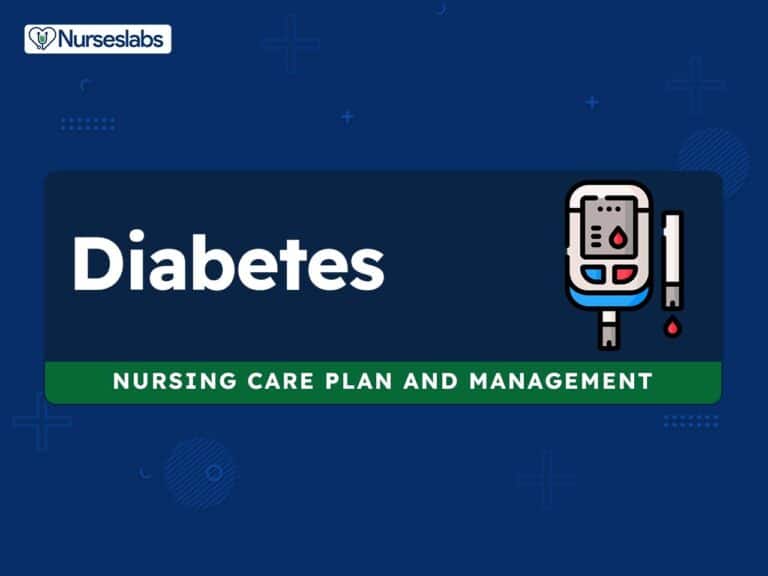

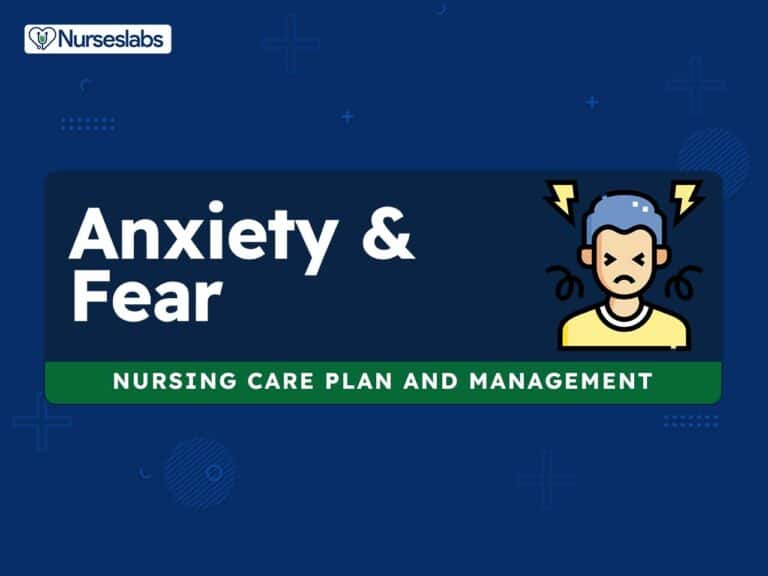
Leave a Comment